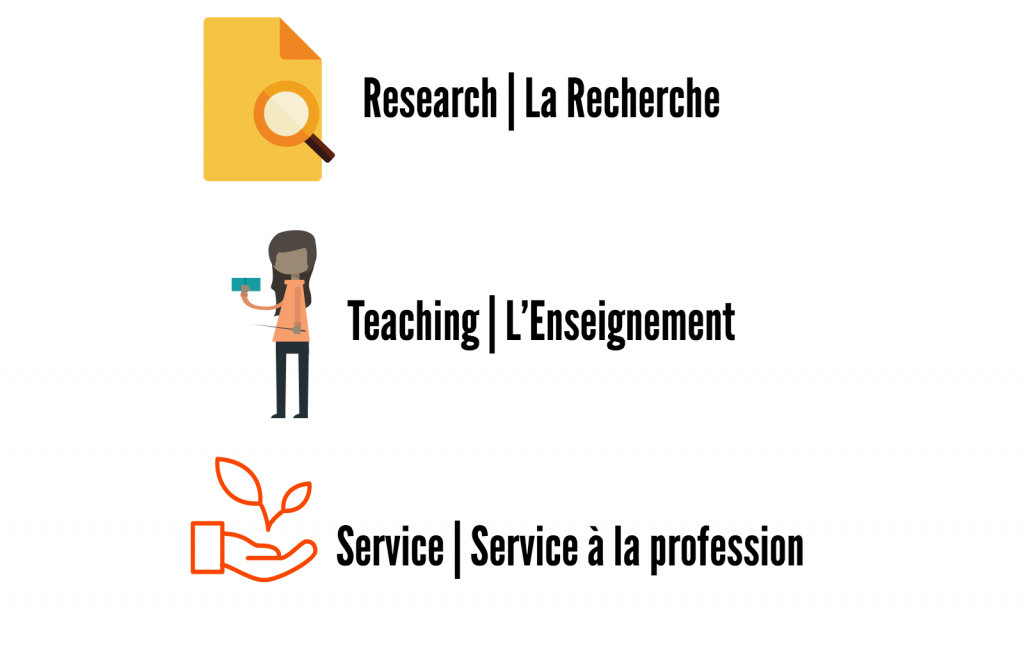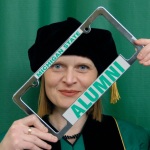 TL;DR Version
TL;DR Version
[HT to wiobyrne.com for his example on the TL;DR convention. I love this idea for making longer posts more quickly accessible.]
Big ideas from our talk with graduate students and faculty on digital identity included:
- Everyone worries about sharing their work as a graduate student. Don’t let perfectionism stop you from creating a presence online. Evidence of you and your ideas is better than no evidence of you and your ideas.
- Start small (e.g., with a Twitter account?) and embrace the evolution of your identity and the ideas that will emerge from your presence and engagement in digital spaces.
- Twitter opens infinite possibilities for professional learning and community building around your scholarship. You never know who is in the room when you present at a conference — and these colleagues might backchannel you, Tweet out an endorsement of your work, or message you to talk about your work later. Exciting professional opportunities can happen because you are on Twitter.
- A digital hub is a great idea. Create a portfolio space that includes a blog, and links to all of your other work online (e.g., Academia.edu, ResearchGate.net, About.me, LinkedIn.com, Twitter.com)
- Plan the look, feel, content, structure, and approach to your own digital identity by exploring a range of digital mentors. Find scholars whose digital identities you admire and do what they do! This digital commonspace document links to some of our most admired digital identities.
Long Version
This week, I had the pleasure to present with my colleague, Jon Wargo, to an audience of doctoral students and faculty colleagues on the issue of constructing and curating a digital identity. The session was video recorded so that we would have an archive of the talk that could be shared with others. Unfortunately, an electrical problem interfered with the audio recording and despite the best efforts of our colleagues in the TIES office in the College of Education, the terrible buzzing could not be removed from the audio track. As a result, the recording was unusable. I’ve decided to provide a summary of the main points here so that, at the very least, the big ideas and questions addressed during the session are available. You can also download Jon’s slides — we used these as the framework for our talk.
Big Ideas
Jon and I talked about why it’s essential to develop a digital identity as an emerging scholar. Reasons include:
- The divide between the “digital world” and the “real world” isn’t really a divide anymore. There is just “the world” and it includes digital contexts for information gathering, sharing and creating. As a scholar, if you’re not actively creating and sharing your ideas in digital spaces, then how will people find your ideas?
- Actively curating your digital presence means that you can craft your identity. If you have more of a free-range existence online, then people have to come to their own conclusions about what makes you unique as a scholar. Why not bring it all together so that people have easy access to all of the great work you’re doing?
- As an educational researcher, we think it’s essential to think about your role as a public intellectual while in graduate school. Professors have a responsibility to inform public discourse — the digital space is the perfect space to start communicating and refining ideas that will, eventually, influence policy. Blog. Tweet. Revise. Repeat.
- If you study digital ANYTHING, then you absolutely must have a digital presence as a scholar. As Jon’s (super wise and critical) student participants said to him one day, “How are you going to study what you don’t know?”
- Google. Have you Googled yourself lately? What do people see when they Google you? If you don’t like what you see, you should do something about it. You can be absolutely guaranteed that anyone (i.e., students, colleagues, future employers) who wants to know more about you will Google you. Will they be impressed? Nonplussed? Disappointed that there is nothing there to learn?
- Have a plan. Do what you can maintain now, but have a long-term vision for what you would like your digital presence to be in the year you go on the job market, or in 5 or 10 years.
We also summarized a list of tools, networks and strategies that grad students can use to construct their digital identity.
- Create a digital portfolio/hub. Tools for doing this include: Weebly, WordPress, Squarespace, Wix, Google Sites.
- Be sure to include your CV, evidence of your teaching awesomeness, a blog, and access to your other digital channels like Twitter, YouTube, ResearchGate etc.
- You might also consider a page that features something cool that makes you, you. For instance, my colleague Mete Akcaoglu includes a page that features his photography.
- Academia.edu and ResearchGate are great places for you to share your scholarship openly.
- Publish drafts of your work if copyright permissions prevent you from sharing .pdfs of published work.
- Lots of scholars share .pdfs of their published work on their websites. Be sure to negotiate this issue clearly with publishers so that you know what you can or cannot share. Ideally, though, you can retain rights that enable you to share your work openly on the web. Paywalls really limit the mobility of your ideas!
- As you learn to use Twitter, start by watching and listening. Follow hashtags of conferences, or communities that you like. Examples might include #literacies #edchat #michED
- LinkedIn is another place for you to present yourself professionally. There is a debate about how useful it is for the traditional academic job search, but more broadly, this is the space that HR professionals use to find out about you. Plus, you can sign up for alerts of jobs that align with your skills and credentials. You never know where you will find out about the ideal position for you!
Questions
Colleagues asked several fantastic questions during the session. Here’s a list with our answers.
1. Do you differentiate who you are in different social networks? If so, what is your strategy?
My response to this was both yes, and no. Facebook, for instance, is a place where I connect with people who are both personal friends and colleagues, so in that space, I think about my personal/professional identity. This means that I allow myself to share information about myself personally, but always keep it dignified  On Twitter, I’m just my professional self. On my blog, it’s mostly professional with the odd post about parenting and baking.
On Twitter, I’m just my professional self. On my blog, it’s mostly professional with the odd post about parenting and baking.
Jon’s response was similar. Basically, we agreed that we have to be strategic and think about what parts of our personal/professional selves we choose to share.
2. What are the pros/cons of a locked vs. open Twitter account?
One colleague noted that he prefers a locked Twitter account so that he can control who follows his ideas. He brings a healthy skepticism to account permissions that keeps his interactions on Twitter more connected to his circle of professional acquaintances in real life (IRL). Others keep their accounts open so that anyone can follow them and they can expand their networks and influence.
3. How much did you spend to get your website up and running?
Jon and Michelle both spent less than $100 to set up their websites. Costs include the purchase of a domain name (via a service such as GoDaddy.com) and “pro” templates/themes for your site. Jon noted that MSU grad students can avail themselves of a substantial subscription discount (40% ish?) at SquareSpace.com.
4. How do you use Twitter at conferences?
Many colleagues noted that they use Twitter to livetweet conference sessions. This serves many purposes. First, it helps us, as attendees, to process and synthesize big ideas from the session. Second, it gives people in our networks access to the ideas at the session. It feels great to give access to those who aren’t actually in the room but who would like to know what is happening! Thirdly, it enables us to participate in the conference backchannel which can lead to many live conversations at the conference.
The session was attended by several colleagues who also added their Twitter handles to the digital common space. As a result, everyone expanded their professional learning networks. Everyone left the session having done one small thing that brought them closer to reaching their goals for their digital presence.
]]>

 TL;DR Version
TL;DR Version
 On Twitter, I’m just my professional self. On my blog, it’s mostly professional with the odd post about parenting and baking.
On Twitter, I’m just my professional self. On my blog, it’s mostly professional with the odd post about parenting and baking. I’ve been away from my blog for what seems like an eternity — over a month — but it has been rather busy chez nous. On December 2, I successfully defended my dissertation [insert the feelings you may have felt on that day yourself, or the feelings you expect you would feel about that kind of thing…and that’s probably what I felt too…all of it].
I’ve been away from my blog for what seems like an eternity — over a month — but it has been rather busy chez nous. On December 2, I successfully defended my dissertation [insert the feelings you may have felt on that day yourself, or the feelings you expect you would feel about that kind of thing…and that’s probably what I felt too…all of it].




